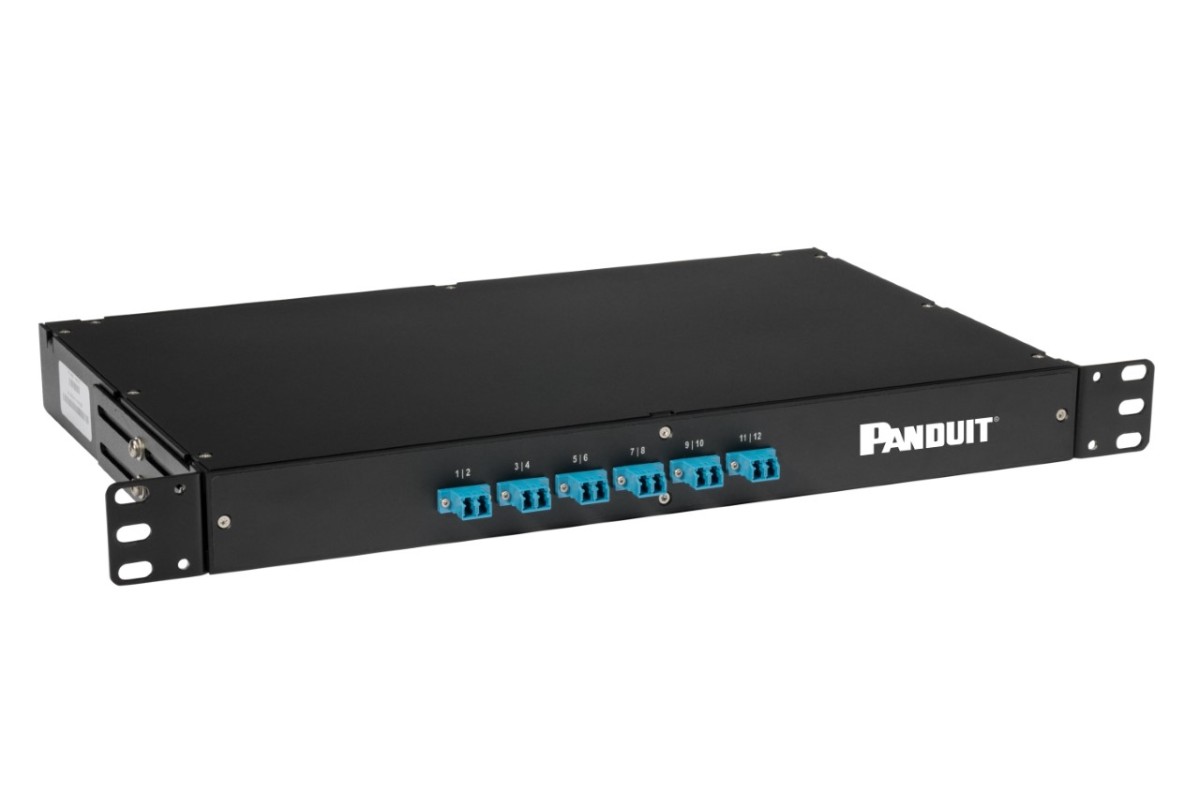OneMode extends data reach out to 800m and up to 5000m using a second OneMode device. The technology offers an inexpensive, and quick to deploy, solution to upgrading campus networks to the latest data requirements.
OneMode has been developed in partnership with Cailabs, a French deep tech company and leader in light-beam shaping. Panduit has the global rights to integrate Cailabs technology within the innovative OneMode product portfolio. This far reaching agreement includes exclusive use of the technology for the education market.
OneMode shapes the laser light to become the dominant fundamental mode and the cable behaves as if it is single mode fibre. This eliminates modal and chromatic dispersion providing the capability for 100X data speeds and the extended cable runs. Panduit has demonstrated the capability of 100Gbps up to 500m on multimode fibre, with zero signal degradation.
OneMode offers multiple benefits to markets such as education, healthcare, enterprise, industrial and other campus-based markets due to the capability to use installed cabling rather than rip and replace and trench work to replace old cable with new fibre infrastructure.
Global shortage of fibre optic cables, especially in Europe, Asia and China, as stated by market research company, Cru Group has led to delays and price increases to almost double in 16-months. As technology demands across campus infrastructure expands to support more connected devices, running more cloud services, the bandwidth limitations of multimode fibre installations become the barriers to efficiency and new technology uptake.
Panduit’s OneMode devices can be installed in half the time that rip and replace requires. The device is simply to install, with access to the telecom closet, and creates no disruption to the network regardless to the topology during deployment. This technology provides a flexible and affordable solution to reduce the investment in upgrading multimode cabling infrastructure. OneMode can support the evolution in network traffic, without long, complex, and expensive new cable deployment.
Ultra-resistant Nylon Cable Ties
Panduit has also launched a range of harsh environment and UV-resistant cable ties, the PLT4S-M6120, manufactured in resilient nylon 612 with a guaranteed 20-year life cycle. Panduit’s PLT4S-M6120 cable ties are resistant to chemical corrosion, even salts, hydrocarbons, chlorinated hydrocarbons, bases, or corrosive substances such as zinc chloride or diluted acids, making them ideal for harsh outdoor applications.
The robust material properties of nylon 612 also ensure continuous stable hold in position for cable or pipework across the ambient temperature range of -60oC to 90oC guaranteeing a wide application including high wind and high vibration surfaces.
The limited availability of nylon 12 on the world market and the 15% cost advantage of nylon 612 over nylon 12 make Panduit’s new cable tie attractive for numerous applications in industry and renewable energy systems.
The Panduit fasteners are ideal for cable management on galvanized surfaces and frames, for example, in the growing market for photovoltaic systems. Available in black nylon, the cable ties have a one-piece design with a locking wedge and a curved, tapered tip requiring less insertion force. The PLT4S-M6120 is easy to install increasing reliability and raising overall productivity.




